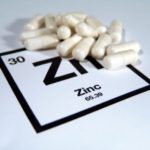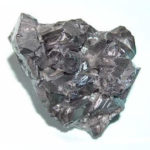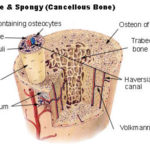By Ben Fuchs | Pharmacist Ben
In Dr. Ananda PrasadIn’s seminal book “The Biochemistry of Zinc”, the nutritional chemist’s go-to guide for all things zinc, there is ample picture proof of the tragedy of deficiencies in the super, unbelievable important mineral. Page after page of photographs taken of children and adults who suffer from nutritional lack of zinc depict the impact of deprivation of this vital nutrient. Stunted growth, skin lesions, hair loss, wasting away syndromes, where the body becomes emaciated and frail, are all vividly portrayed. And zinc deficiency can cause less dramatic health problems too: immunity, skin and bone, the brain, the eye, reproductive and general hormone health, and blood sugar balance and insulin and digestive integrity largely depend on the presence of this incredibly important nutritional metal.
 The scariest thing about zinc deficiency is its frequency, which makes it one of the most significant and widespread nutritional deficiencies in the world. 1 out 3 people world-wide is at risk for zinc deficiency and in developing countries, where cereals and grains (which contain zinc-binding compounds and are often-times grown on zinc deficient soils) provide the bulk of caloric intake, it is the 5th leading risk for disease.
The scariest thing about zinc deficiency is its frequency, which makes it one of the most significant and widespread nutritional deficiencies in the world. 1 out 3 people world-wide is at risk for zinc deficiency and in developing countries, where cereals and grains (which contain zinc-binding compounds and are often-times grown on zinc deficient soils) provide the bulk of caloric intake, it is the 5th leading risk for disease.
Zinc is involved in over 200 different enzyme systems in the body. In other words, if there is any manner of deficiency, literally hundreds of biological systems will be operating at less than peak efficiency. The net result of zinc deficiency is a body that is dramatically less effective at growing, repairing and cogitating and is less able to perform, thrive and resist stress and disease.
Zinc is a key component of the body’s wound healing system. This can be especially helpful pre and post surgery. And, one of the best ways to help heal a sore throat and shorten the duration of a cold or a flu) is to suck on zinc lozenges. Most people notice relief within a day.
Zinc may be the single most important nutrient for acne-prone skin. In a laboratory, acneic lesions can be induced in animals by creating zinc deficiencies. Anyone who suffers from acne or acne-like blemishes should consider add a daily 50mg dose of zinc to well-rounded supplement program.
Pregnant women would be especially wise to watch out for zinc deficiencies. Not only does the developing fetus benefit from this critical nutrient, but deficiencies are associated with the development of stretch marks. And mothers to-be should be aware that there is scientific literature that indicates that zinc deficiency may persist for generations. In an article published in the journal “Science”, test animals who were deprived of zinc demonstrated a depressed immune system that persisted for 3 generations! Men get special benefits too. Supplementing with zinc is one of the best ways to protect the prostate. It’s important for improving sperm count, semen is especially rich in zinc. And, zinc’s supportive role in testosterone metabolism has given the mineral a well-deserved reputation as nutritional support for libido. Perhaps this accounts for the notoriety that oysters and the Colorado variety, Rocky Mountain oysters (which are both relatively high zinc) get for being aphrodisiacs.
Zinc is plays a critical part brain function and mental health. It’s been used to treat autism, ADHD and depression. Low levels in children have been associated with learning disabilities. In the 1970’s Dr. Carl Pfeiffer reported that zinc supplementation, when taken with Vitamin B6 was 95% per cent successful in treating certain types of schizophrenia.
There’s an important relationship between zinc and vitamin A. Zinc is required for Vitamin A to be activated and transported in the body. In the absence of zinc, Vitamin A deficiency is sure to follow. Vitamin A is required for eye, skin, bone, and heart and brain health and is also an important part of the immune system. In other words, in addition to all of the problems directly associated with a lack of zinc, deprivation of this key mineral can also induce a long list of Vitamin A deficiency symptoms as well.
We’ll continue with some practical ways to maintain Zinc health in a coming post…















Thankyou!
Such an interesting post! There are people encountered problems in terms of their sex life and they are looking for more information on how to increase testosterone level.
I bought a 30 mg of zinc picolinate plus 2mg copper and i was wondering if this satisfy’s my daily dose?